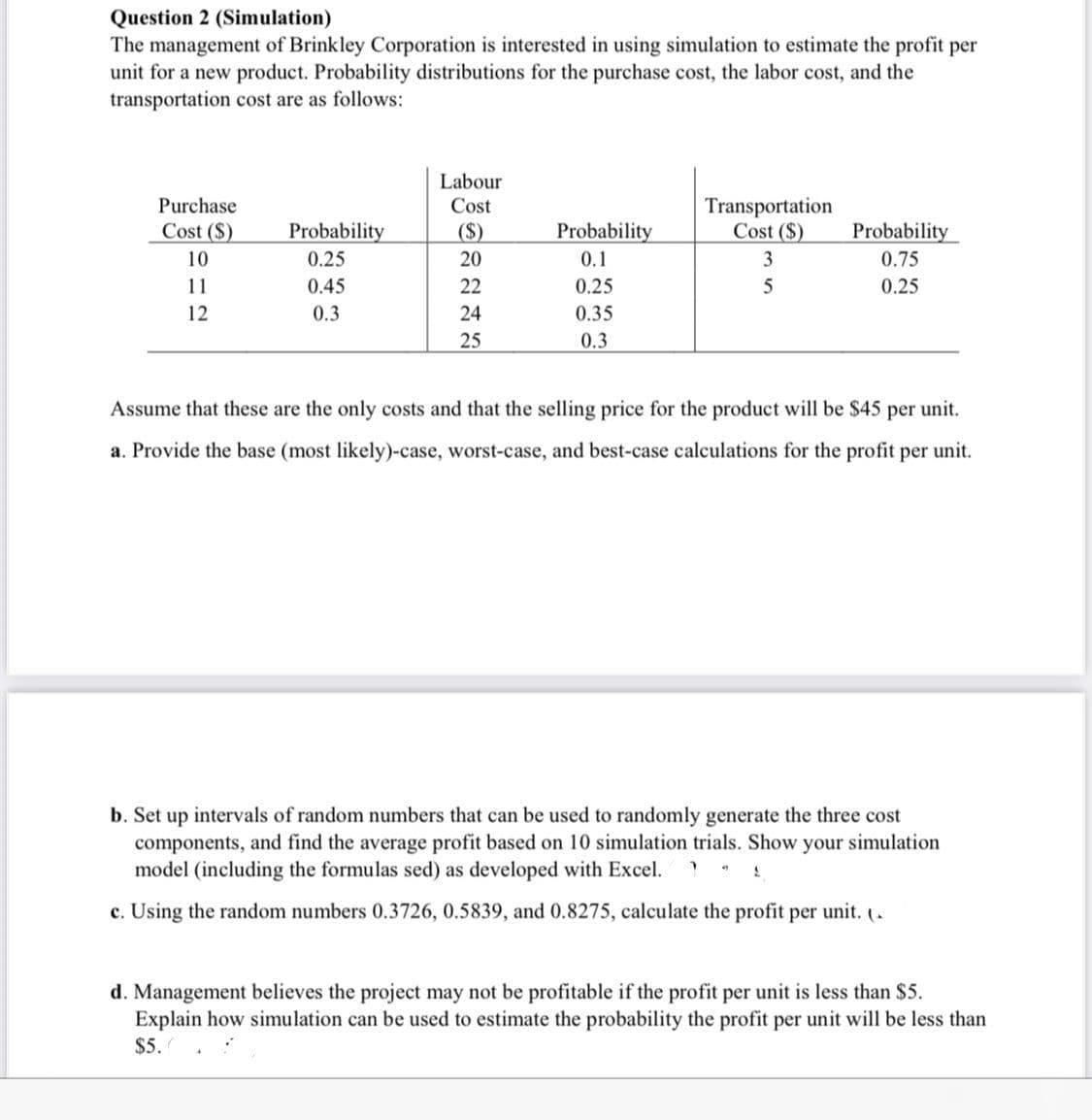The management of Brinkley Corporation is interested in using simulation to estimate the profit per unit for a new product. Probability distributions for the purchase cost, the labor cost, and the transportation cost are as follows:
The management of Brinkley Corporation is interested in using simulation to estimate the profit per unit for a new product. Probability distributions for the purchase cost, the labor cost, and the transportation cost are as follows:
Functions and Change: A Modeling Approach to College Algebra (MindTap Course List)
6th Edition
ISBN:9781337111348
Author:Bruce Crauder, Benny Evans, Alan Noell
Publisher:Bruce Crauder, Benny Evans, Alan Noell
Chapter5: A Survey Of Other Common Functions
Section5.6: Higher-degree Polynomials And Rational Functions
Problem 5E: Population Genetics In the study of population genetics, an important measure of inbreeding is the...
Related questions
Question

Transcribed Image Text:Question 2 (Simulation)
The management of Brinkley Corporation is interested in using simulation to estimate the profit per
unit for a new product. Probability distributions for the purchase cost, the labor cost, and the
transportation cost are as follows:
Labour
Transportation
Cost ($)
Purchase
Cost
Cost ($)
Probability
($)
Probability
Probability
10
0.25
20
0.1
3
0.75
11
0.45
22
0.25
0.25
12
0.3
24
0.35
25
0.3
Assume that these are the only costs and that the selling price for the product will be $45 per unit.
a. Provide the base (most likely)-case, worst-case, and best-case calculations for the profit per unit.
b. Set up intervals of random numbers that can be used to randomly generate the three cost
components, and find the average profit based on 10 simulation trials. Show your simulation
model (including the formulas sed) as developed with Excel.
c. Using the random numbers 0.3726, 0.5839, and 0.8275, calculate the profit per unit. (.
d. Management believes the project may not be profitable if the profit per unit is less than $5.
Explain how simulation can be used to estimate the probability the profit per unit will be less than
$5.
Expert Solution
This question has been solved!
Explore an expertly crafted, step-by-step solution for a thorough understanding of key concepts.
This is a popular solution!
Trending now
This is a popular solution!
Step by step
Solved in 3 steps

Recommended textbooks for you

Functions and Change: A Modeling Approach to Coll…
Algebra
ISBN:
9781337111348
Author:
Bruce Crauder, Benny Evans, Alan Noell
Publisher:
Cengage Learning

Functions and Change: A Modeling Approach to Coll…
Algebra
ISBN:
9781337111348
Author:
Bruce Crauder, Benny Evans, Alan Noell
Publisher:
Cengage Learning